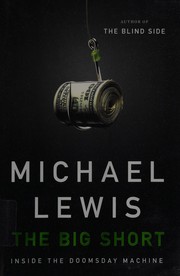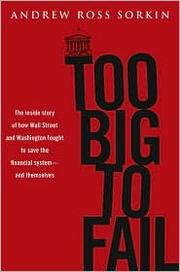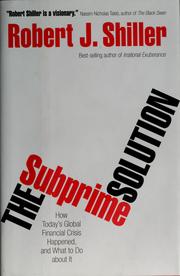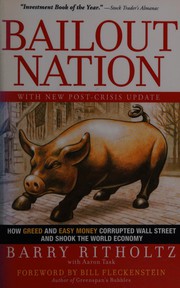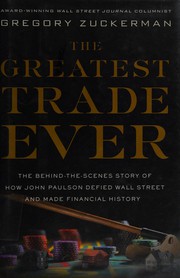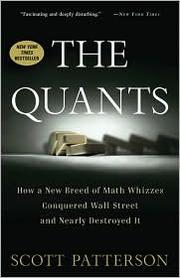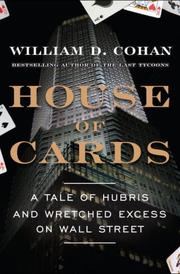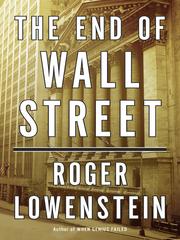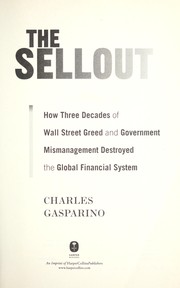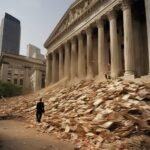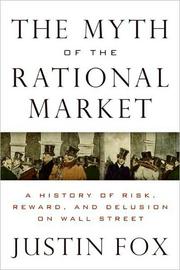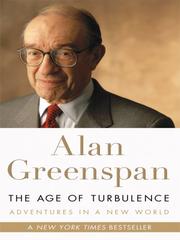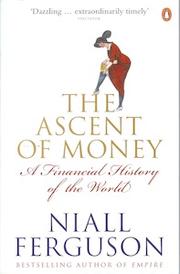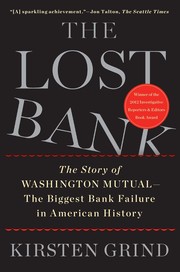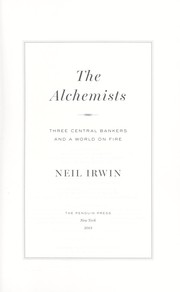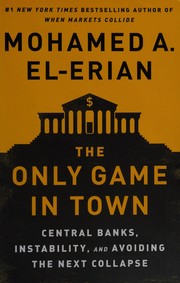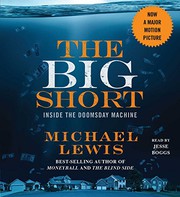If you’re looking to gain a deeper understanding of the 2008 financial crisis, then you’ll want to add these 20 best books about financial crisis 2008 to your reading list. Whether you’re a finance professional or just someone interested in learning about the causes and effects of this global economic meltdown, these books offer valuable insights and analysis. From detailed accounts of the events leading up to the crisis to personal stories of those affected, each book on financial crisis 2008 provides a unique perspective on this pivotal moment in history. Get ready to dive into the complexities of the financial world and emerge with a new understanding of the events that shook the global economy.
Contents
- 1 20 Best Financial Crisis 2008 Books
- 2 The Big Short
- 3 Too Big to Fail
- 4 The Subprime Solution
- 5 Bailout Nation
- 6 The Greatest Trade Ever
- 7 The Quants
- 8 House of Cards
- 9 The End of Wall Street
- 10 All the Devils Are Here
- 11 The Sellout
- 12 The Myth of the Rational Market
- 13 The Age of Turbulence
- 14 The Ascent of Money
- 15 The Financial Crisis Inquiry Report
- 16 The Lost Bank
- 17 The Panic of 1907
- 18 The Alchemists
- 19 The Only Game in Town
- 20 The Big Short: Inside the Doomsday Machine
- 21 Too Big to Fail: The Inside Story of How Wall Street and Washington Fought to Save the Financial System—and Themselves
- 22 Final Thoughts on Best Financial Crisis 2008 Books
- 23
20 Best Financial Crisis 2008 Books
The Big Short
by Michael Lewis
The Big Short by Michael Lewis is a gripping non-fiction book about the financial crisis of 2008. Lewis provides a detailed account of the events leading up to the crisis, focusing on the individuals who saw the impending collapse of the housing market and bet against it. The book follows the journeys of a handful of investors who foresaw the housing bubble and made substantial profits by betting against the market. Through vivid storytelling and in-depth research, Lewis uncovers the greed, recklessness, and incompetence that led to the financial meltdown of 2008. The Big Short offers a fascinating and accessible exploration of the complex financial instruments and practices that contributed to the crisis, making it a must-read for anyone interested in understanding the intricacies of the 2008 financial crisis. Lewis’s narrative style and ability to demystify the world of high finance make this book a compelling and informative read for anyone looking to gain insight into the events that shaped the financial landscape in 2008.
Too Big to Fail
by Andrew Ross Sorkin
Too Big to Fail by Andrew Ross Sorkin is a gripping account of the 2008 financial meltdown. Sorkin, a New York Times reporter, takes readers behind the scenes of the most dramatic moments of the crisis, offering an inside look at the high-stakes negotiations, power struggles, and decisions that ultimately shaped the fate of the global economy.
Through extensive research and interviews with key players, Sorkin provides a comprehensive and compelling narrative that sheds light on the complexities of the financial world and the human drama that unfolded during those tumultuous times. The book offers a detailed analysis of the interconnectedness of the banking industry, the collapse of Lehman Brothers, and the government’s unprecedented intervention to prevent a total economic catastrophe.
Too Big to Fail is a must-read for anyone seeking to understand the intricacies of the financial crisis 2008 and its far-reaching implications. Sorkin’s insightful storytelling and in-depth exploration of the events make this book an essential resource for anyone interested in the inner workings of the financial world.
The Subprime Solution
by Robert J. Shiller
The Subprime Solution by Robert J. Shiller is a compelling book on the financial crisis of 2008. Shiller, a renowned economist, provides an insightful analysis of the events leading up to the crisis and offers potential solutions to prevent a similar catastrophe in the future. He delves into the complexities of the subprime mortgage market, the housing bubble, and the subsequent global economic downturn, shedding light on the systemic flaws that contributed to the crisis.
Shiller’s book about the financial crisis of 2008 is not just a dry analysis of numbers and policies; it is a thought-provoking exploration of human behavior, market psychology, and the role of government regulation. He offers practical and innovative ideas for addressing the root causes of the crisis and emphasizes the importance of collective action in creating a more stable and resilient financial system.
Whether you are a finance professional, an academic, or a concerned citizen, this financial crisis 2008 book is a must-read for anyone seeking a deeper understanding of the events that shook the global economy.
Bailout Nation
by Barry Ritholtz
Bailout Nation by Barry Ritholtz is a compelling book about the financial crisis of 2008, offering a comprehensive analysis of the events that led to the economic meltdown. Ritholtz, a renowned financial expert, provides a detailed account of the key players involved in the crisis, including government officials, bankers, and regulators. He explores the factors that contributed to the collapse of major financial institutions and the subsequent taxpayer-funded bailouts.
Ritholtz delves into the risky behavior of Wall Street and the lack of oversight that allowed the crisis to unfold, offering valuable insights into the systemic failures that led to the ‘great recession’. The author’s engaging writing style and in-depth research make Bailout Nation a must-read for anyone seeking to understand the complexities of the financial crisis of 2008. Ritholtz’s book is an essential resource for investors, policymakers, and anyone interested in gaining a deeper understanding of the causes and consequences of the ‘great recession’.
The Greatest Trade Ever
by Gregory Zuckerman
The Greatest Trade Ever by Gregory Zuckerman is a compelling book about the financial crisis of 2008 and the extraordinary trade that made one investor a fortune. Zuckerman tells the story of how a handful of Wall Street outsiders foresaw the impending collapse of the housing market and bet against it, raking in billions in profits while the rest of the financial world crumbled. Through meticulous research and gripping storytelling, Zuckerman brings to life the high-stakes world of hedge funds and the individuals who made history by capitalizing on the financial turmoil of the time.
The Quants
by Scott Patterson
The Quants by Scott Patterson is a gripping book on the financial crisis of 2008, delving into the world of quantitative analysts, or “quants,” who played a significant role in the market collapse. Patterson takes readers on a thrilling journey through the rise and fall of these mathematical geniuses, detailing their groundbreaking strategies and the catastrophic consequences that followed.
Through vivid storytelling and in-depth research, Patterson unveils the hidden world of Wall Street’s number crunchers, revealing the high-stakes gambling, intense rivalries, and the shocking impact of their algorithmic trading on the global economy. The book offers a fascinating insider’s look at the minds behind the meltdown, shedding light on the complex web of risk, greed, and hubris that ultimately led to the financial crisis of 2008.
The Quants is a must-read for anyone seeking to understand the intricate web of events that led to the financial crisis of 2008, offering a captivating narrative that brings this pivotal moment in history to life.
House of Cards
by William D. Cohan
House of Cards by William D. Cohan is a captivating book about the financial crisis of 2008. In this meticulously researched and compelling narrative, Cohan takes readers behind the scenes of the collapse of Wall Street and the ensuing economic turmoil. The book provides a detailed and comprehensive account of the events leading up to the crisis, shedding light on the actions of key players and the systemic failures that contributed to the meltdown.
Cohan’s vivid storytelling and in-depth analysis make House of Cards a must-read for anyone seeking to understand the complexities of the financial crisis of 2008. Through meticulous research and interviews with insiders, Cohan paints a vivid portrait of the power struggles, greed, and hubris that ultimately led to the crisis. The book offers valuable insights into the inner workings of Wall Street and the high-stakes world of finance, making it essential reading for anyone interested in the events that shaped the global economy.
The End of Wall Street
by Roger Lowenstein
The End of Wall Street by Roger Lowenstein is a gripping book about the financial crisis of 2008. Lowenstein provides a comprehensive analysis of the events leading up to the crisis, the key players involved, and the catastrophic consequences that reverberated across the global economy. Through meticulous research and insightful storytelling, Lowenstein delves into the complex world of high finance, unraveling the intricate web of risky investments, regulatory failures, and corporate greed that culminated in the meltdown of Wall Street.
Lowenstein’s narrative is both educational and captivating, offering readers a clear understanding of the intricate financial mechanisms that led to the crisis. With a journalist’s eye for detail and a historian’s knack for storytelling, Lowenstein brings the gripping events of the financial crisis to life, making this book a must-read for anyone seeking to understand the intricacies of the financial world and the far-reaching impact of the 2008 crisis.
All the Devils Are Here
by Bethany McLean and Joe Nocera
All the Devils Are Here by Bethany McLean and Joe Nocera is a captivating book on the financial crisis of 2008. Through meticulous research and compelling storytelling, the authors provide an in-depth exploration of the factors that led to the economic collapse, offering a comprehensive analysis of the key players and institutions involved. McLean and Nocera shed light on the complex web of events and decisions that ultimately culminated in the crisis, unraveling the intricate financial instruments and risky behaviors that contributed to the meltdown.
With a keen eye for detail and a knack for making complex financial concepts accessible, the authors paint a vivid picture of the financial crisis of 2008 and its far-reaching impact on individuals, businesses, and the global economy. All the Devils Are Here is a must-read for anyone seeking to understand the intricacies of the crisis and its aftermath, offering valuable insights into the workings of the financial world and the lessons that can be learned from this pivotal moment in history.
The Sellout
by Charles Gasparino
The Sellout by Charles Gasparino is a gripping account of the 2008 financial crisis, offering an insider’s perspective on the events that led to the meltdown. Gasparino, a seasoned journalist and financial expert, provides a detailed and engaging narrative that delves into the complexities of the crisis, from the reckless behavior of Wall Street to the regulatory failures that allowed it to happen. Through meticulous research and interviews with key players, Gasparino paints a vivid picture of the greed, hubris, and incompetence that characterized the era.
With a sharp and critical eye, Gasparino dissects the confluence of factors that culminated in the crisis, shedding light on the role of government, big banks, and the culture of risk-taking that permeated the financial industry. The Sellout is a must-read for anyone seeking to understand the underpinnings of the ‘book on financial crisis 2008’ and its far-reaching impact on the global economy. Gasparino’s compelling storytelling and deep insights make this book about ‘financial crisis 2008’ a compelling and enlightening read for both finance professionals and lay readers alike.
The Myth of the Rational Market
by Justin Fox
The Myth of the Rational Market by Justin Fox is a captivating exploration of the history and impact of the financial crisis of 2008. In this thought-provoking book, Fox delves into the world of finance and challenges the widely held belief in the rationality of financial markets. He expertly uncovers the irrationality and unpredictability that led to the catastrophic events of the financial crisis, exposing the flaws in the traditional economic theories that failed to anticipate or prevent the crisis.
Through engaging storytelling and in-depth analysis, Fox sheds light on the complex factors that contributed to the crisis, offering valuable insights into the interconnected nature of financial systems and the human behavior that drives them. The Myth of the Rational Market is an essential read for anyone seeking to understand the devastating impact of the financial crisis of 2008 and the lessons that can be learned from it. Fox’s compelling narrative and thorough research make this book a must-read for anyone interested in the dynamics of the financial world.
The Age of Turbulence
by Alan Greenspan
The Age of Turbulence by Alan Greenspan is a fascinating memoir that delves into the life and work of the former chairman of the Federal Reserve. Greenspan provides a unique perspective on the inner workings of the U.S. economy and the challenges he faced during his tenure. The book offers valuable insights into the complexities of global finance and the interconnectedness of markets. It is a compelling read for anyone interested in understanding the forces that shape the modern economy.
Greenspan’s reflections on his time at the Federal Reserve are particularly insightful, offering a behind-the-scenes look at the decision-making process during times of economic upheaval. His analysis of the financial crisis 2008 provides a comprehensive understanding of the events leading up to the crisis and its aftermath. The book is a must-read for anyone seeking to gain a deeper understanding of the financial crisis 2008 and its impact on the global economy.
The Ascent of Money
by Niall Ferguson
The Ascent of Money by Niall Ferguson is a captivating exploration of the history of money and its impact on the world. Ferguson takes readers on a journey through the evolution of money, from ancient times to the present day, and demonstrates how it has shaped the course of human history. The book delves into the origins of banking, the rise of the stock market, and the development of insurance and other financial innovations.
With a keen eye for detail and a compelling narrative style, Ferguson unravels the complex web of economic forces that have driven the world’s financial systems. He also examines how money has been a driving force behind major historical events, from the rise and fall of empires to the global financial crisis of 2008.
For those seeking a deeper understanding of the forces at play in the global economy, The Ascent of Money is an essential read. It provides valuable insights into the history of finance and offers a thought-provoking perspective on the complexities of modern economic systems.
The Financial Crisis Inquiry Report
by Financial Crisis Inquiry Commission
The Financial Crisis Inquiry Report, a comprehensive analysis of the events leading up to the financial crisis of 2008, provides a deep dive into the causes and consequences of the economic meltdown. This book delves into the complex factors that contributed to the crisis, including the housing bubble, subprime mortgage lending, and the failure of regulatory agencies to effectively monitor and address the growing risks in the financial system.
Through thorough research and interviews with key players in the financial industry, the Financial Crisis Inquiry Commission presents a compelling narrative of the events that led to the worst financial crisis since the Great Depression. The report offers valuable insights into the systemic failures that allowed the crisis to unfold, shedding light on the interconnected nature of the financial markets and the devastating impact of unchecked greed and irresponsible risk-taking.
For anyone seeking to understand the complexities of the financial crisis of 2008, this book is an essential read, offering a comprehensive and engaging account of the events that shook the global economy.
The Lost Bank
by Kirsten Grind
The Lost Bank by Kirsten Grind is a gripping non-fiction book that delves into the collapse of Washington Mutual during the tumultuous financial crisis of 2008. Grind paints a vivid and compelling picture of the rise and fall of this once-mighty institution, taking readers behind the scenes to explore the greed, mismanagement, and risky decision-making that ultimately led to its downfall. Through meticulous research and in-depth interviews, Grind provides a captivating narrative that sheds light on the inner workings of the banking industry and the devastating impact of the financial crisis on both the institution and the individuals affected.
This book offers a fascinating look at the human drama and high-stakes power struggles that unfolded within Washington Mutual, making it a must-read for anyone interested in the complexities of the financial world. Grind’s storytelling prowess and attention to detail make The Lost Bank a compelling and insightful exploration of a critical moment in our recent history, making it a standout book on the financial crisis of 2008.
The Panic of 1907
by Robert F. Bruner and Sean D. Carr
The Panic of 1907 by Robert F. Bruner and Sean D. Carr is a captivating exploration of one of the most significant financial crises in American history. This insightful book delves into the events leading up to the panic, the key players involved, and the far-reaching impact it had on the country’s financial system. Through meticulous research and compelling storytelling, Bruner and Carr provide a detailed account of the panic, offering readers a fascinating glimpse into the inner workings of the financial world at the turn of the 20th century.
While the Panic of 1907 may seem like a distant memory, the parallels to the more recent financial crisis 2008 are striking. By examining the causes and consequences of the panic, this book sheds light on the recurring patterns and vulnerabilities within the financial system, making it a must-read for anyone interested in understanding the complexities of financial crises. With its engaging narrative and valuable insights, The Panic of 1907 is an essential book about financial crisis 2008 and a timeless resource for students, historians, and anyone seeking to deepen their understanding of financial crisis 2008 book.
The Alchemists
by Neil Irwin
The Alchemists by Neil Irwin is a captivating book on the financial crisis of 2008 that delves into the inner workings of central banks and their role in steering the global economy through turbulent times. Irwin takes readers on a fascinating journey through the corridors of power, offering a behind-the-scenes look at the decision-making processes that shaped the response to the financial crisis of 2008.
With a keen eye for detail and a knack for storytelling, Irwin brings to life the personalities and dynamics at play in the world of central banking, shedding light on the pivotal moments that defined the financial crisis of 2008. Through meticulous research and insightful analysis, he paints a vivid portrait of the challenges faced by policymakers as they grappled with unprecedented economic turmoil.
Whether you’re a finance enthusiast or simply curious about the inner workings of the global economy, The Alchemists offers a compelling and illuminating exploration of the financial crisis of 2008.
The Only Game in Town
by Mohamed A. El-Erian
The Only Game in Town by Mohamed A. El-Erian is a compelling book on the financial crisis of 2008. El-Erian, a respected economist, provides an insightful analysis of the events that led to the crisis and its lasting impact on the global economy. Through a combination of economic theory, real-world examples, and personal anecdotes, he offers a comprehensive understanding of the complexities surrounding the crisis.
El-Erian’s writing is both accessible and thought-provoking, making this book a valuable resource for anyone seeking to understand the financial crisis of 2008 and its implications for the future. He delves into the interconnectedness of financial markets, the role of central banks, and the challenges of policy-making in the face of uncertainty. The Only Game in Town is a must-read for those interested in economics, finance, and the inner workings of the global economy.
Overall, El-Erian’s book about the financial crisis of 2008 offers a comprehensive and insightful look at one of the most significant events in recent economic history, making it an essential read for anyone looking to gain a deeper understanding of the subject.
The Big Short: Inside the Doomsday Machine
by Michael Lewis
The Big Short: Inside the Doomsday Machine by Michael Lewis is a gripping and eye-opening book about the financial crisis of 2008. This non-fiction narrative delves into the events leading up to the crisis, focusing on the few individuals who saw the impending collapse and bet against the housing market. Lewis masterfully weaves together the stories of these outsiders who predicted the catastrophe and profited from the downfall of the subprime mortgage market.
With his signature wit and storytelling prowess, Lewis provides a comprehensive and engaging account of the complex financial instruments and reckless behavior that led to the meltdown. The book offers a deep dive into the world of Wall Street, exposing the greed, hubris, and ignorance that fueled the crisis.
The Big Short is a must-read for anyone interested in understanding the intricacies of the financial crisis and the individuals who saw it coming. It is a cautionary tale that sheds light on the systemic failures that led to the economic collapse and its devastating impact on individuals and institutions alike.
Too Big to Fail: The Inside Story of How Wall Street and Washington Fought to Save the Financial System—and Themselves
by Andrew Ross Sorkin
Too Big to Fail: The Inside Story of How Wall Street and Washington Fought to Save the Financial System—and Themselves by Andrew Ross Sorkin is a gripping and detailed account of the 2008 financial crisis. Sorkin takes readers behind the scenes of the pivotal moments and decisions that shaped the crisis, offering a comprehensive look at the high-stakes power struggles and the dramatic events that unfolded.
This book provides a deep dive into the interconnected worlds of finance and politics, shedding light on the complex relationships between Wall Street, Washington, and the global economy. Sorkin’s meticulous research and insider perspective make for a compelling narrative that captures the urgency and chaos of the crisis.
Readers will gain valuable insights into the personalities and motivations of the key players involved, as well as the intricate web of financial instruments and institutions that contributed to the meltdown. Too Big to Fail is a must-read for anyone seeking a thorough understanding of the financial crisis of 2008 and its far-reaching impact on the world.
Final Thoughts on Best Financial Crisis 2008 Books
In conclusion, the ’20 best books about Financial Crisis 2008‘ offer valuable insights into the events that led to the global economic downturn. Through in-depth analysis and compelling narratives, these books provide readers with a greater understanding of the factors that contributed to the crisis and its far-reaching impact. Whether you’re an economist, investor, or simply curious about the financial world, these books are essential reads for anyone seeking to comprehend the complexities of the 2008 financial crisis.
Which book about Financial Crisis 2008 is best?
The best book on Financial Crisis 2008 can vary with personal preference, but three widely recommended titles are:
- The Big Short by Michael Lewis,
- Too Big to Fail by Andrew Ross Sorkin,
- The Subprime Solution by Robert J. Shiller.
Each offers valuable insights and could be a great starting point.
What are the best books to learn about Financial Crisis 2008?
For those looking to learn about Financial Crisis 2008, there is a wealth of literature that can provide a comprehensive understanding of the subject. Some of the most highly recommended books include:
- The Big Short by Michael Lewis,
- Too Big to Fail by Andrew Ross Sorkin,
- The Subprime Solution by Robert J. Shiller,
- Bailout Nation by Barry Ritholtz,
- The Greatest Trade Ever by Gregory Zuckerman,
- The Quants by Scott Patterson,
- House of Cards by William D. Cohan,
- The End of Wall Street by Roger Lowenstein,
- All the Devils Are Here by Bethany McLean and Joe Nocera,
- The Sellout by Charles Gasparino
These books offer a range of perspectives on Financial Crisis 2008, covering various aspects and approaches to the subject.
What are the best books about Financial Crisis 2008?
The best books about Financial Crisis 2008 are:
- The Big Short by Michael Lewis,
- Too Big to Fail by Andrew Ross Sorkin,
- The Myth of the Rational Market by Justin Fox,
- The Age of Turbulence by Alan Greenspan,
- The End of Wall Street by Roger Lowenstein,
- The Quants by Scott Patterson.
Each offers unique insights into the subject. While these books about Financial Crisis 2008 are highly regarded, it’s important to note that any list of ‘best’ books is subjective and reflects a range of opinions.
What are the best Financial Crisis 2008 books of all time?
Choosing the best Financial Crisis 2008 books of all time can vary depending on who you ask, but five titles that are often celebrated include
- The Big Short by Michael Lewis,
- Too Big to Fail by Andrew Ross Sorkin,
- The Greatest Trade Ever by Gregory Zuckerman,
- The End of Wall Street by Roger Lowenstein,
- and The Myth of the Rational Market by Justin Fox.
Each of these books has made a significant impact in the field of Financial Crisis 2008 and continues to be influential today.

